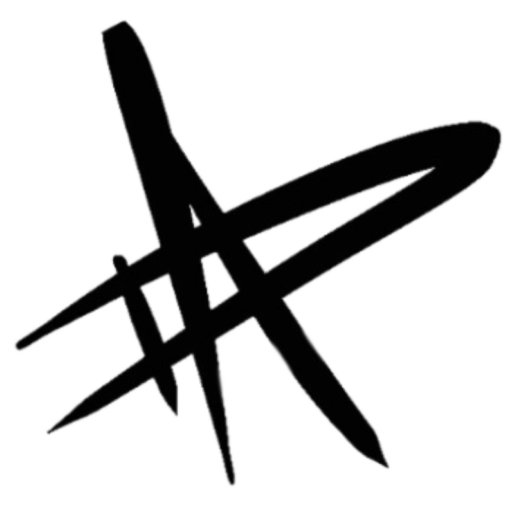How To Make Money Online For Beginners in 2024 – A Guide To Skool

When I made $34.7k online in 2 weeks with a digital marketing company, a light bulb went off in my head.
“Holy Sh*t, this actually works!”
I never thought it was possible.
I barely graduated highschool. I was diagnosed with ADHD at 14.
I also flipped burgers for a living and was the classic jack-of-all-trades kid who had a ton of hobbies, but couldn’t focus on one thing.
And I felt stupid, dumb, and lost.. like I had nothing going for me.
But I started studying some creators online, and found something interesting.
So today, I’m here to teach you how to make money online for beginners, using my favorite platform called skool.
In 2024, making money online is easier, faster, and funner than ever.
Anyone with an internet connection can do it. And with the rise of AI and Chat GPT, theres no more excuses.
But the online world is filled with noise.
It’s overwhelming knowing where to start. What tools to use. What to focus on.
Hint: The easiest way to start is with the knowledge already inside your head.
As Dan Koe says,
You have $100M business in your brain.

According to Statista, The Online Education market is estimated to reach a revenue of $185.20 Billion in 2024.
Don’t just take my word for it, but thousands of others have already started using it too.
On January 10th 2024, Alex Hormozi (one of the greatest content creators of our time) announced that he made the biggest investment of his life. Guess what it was?
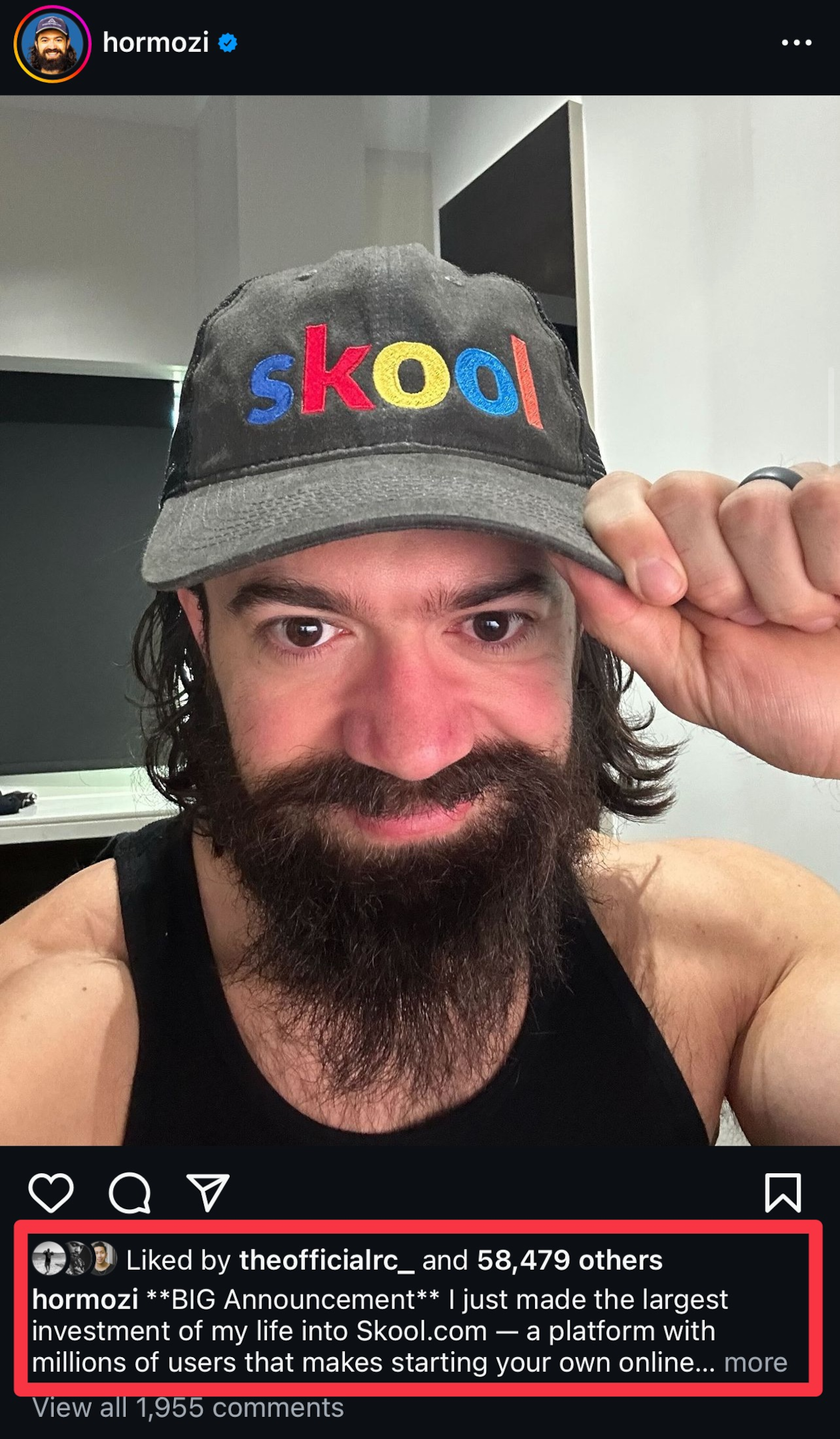
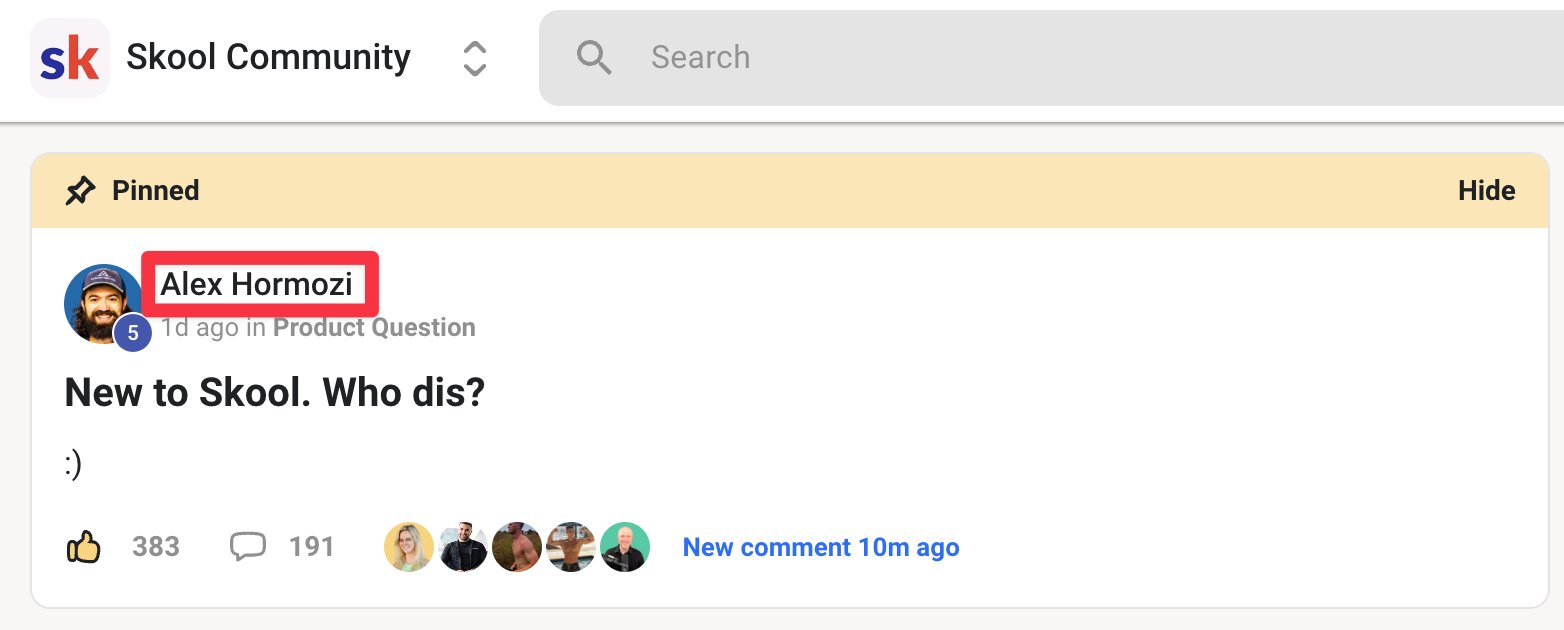
Lets get started
Who Made Skool?
A platform that combines a Facebook-style community and Kajabi-style content board for a more interactive educational experience.
And I’m loving it..
It was created by Sam Ovens. This guy 👇🏻
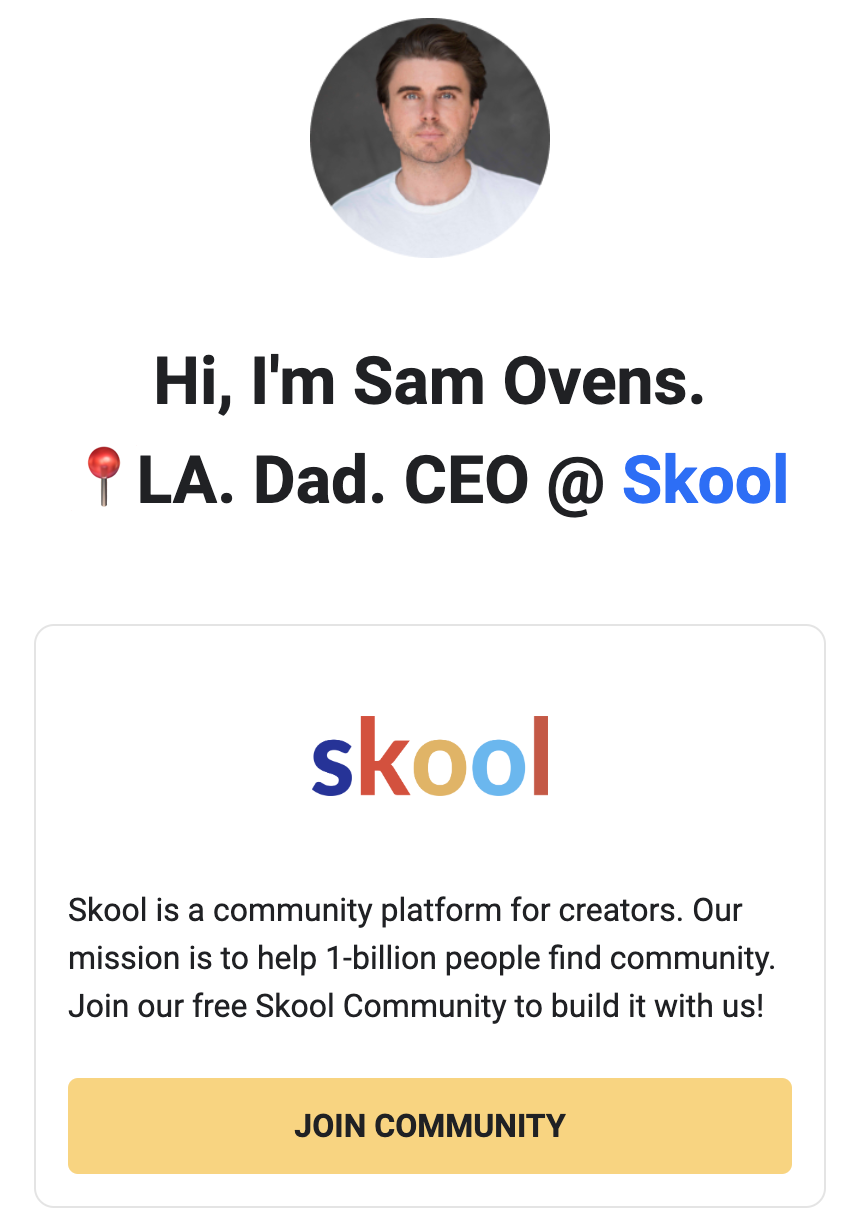
He’s an entrepreneur and educator who’s made over $36M/year with his online courses and masterminds. So he’ walked the walk’s got skin in the game as a course creator and community builder. .
After making online courses for 9 years with his company consulting.com, he noticed that tools like Kajabi, Patreon, Facebook groups, Discord, or Teachable, were frustrating to use.
You see, most course platforms focus only on courses but lacked community features. So knowledge workers had to create separate facebook groups for a more interactive and fun learning experience.
Based on his observations, Sam predicted a market gap for a platform that combined community and courses.
And thus, Skool was born.
And this guide will help you create your own in just a few hours.
What is Skool?

Overview
I’ve invested over $40k+ into online courses. I’ve noticed 3 things.
- $47 programs can offer more value than $4,700 programs
- High ticket programs, $500-$10k+ sometimes suck.
- The online platform they use matters.
Cole Gordon’s Closers.io on Skool and it just makes everything easier. The platform has also been instrumental in building my own communities.
Skool changed the game by combining courses, community, and gamification.
Here’s my take.
Top Features
- Seamless Course and Community Integration: Skool excels in blending educational courses with communities, enhancing the learning experience.
- Gamified Engagement: The platform encourages interaction through gamification – students can level up and unlock different resources by liking, commenting, and engaging with other members posts.
- Easy Connectivity: Connect effortlessly with other students, share insights, and gain feedback in a supportive environment.
- User-Friendly Course Creation: Creating programs is straightforward, catering to both beginners and seasoned educators.
- Profitable Affiliate Program: Skool offers an attractive affiliate program, providing $39 in passive income monthly per referral.
Pricing
Skool offers a 14 day free trial.
Then it’s $99/month, and worth every penny if you set it up right.
Bottom Line/My Take
From personal experience, Skool stands out as the best online platform for anyone looking to create and grow online communities. It’s perfect for entrepreneurs, educators, knowledge workers, and anyone eager to engage in meaningful online learning.
Its user-friendly and intuitive. And with it’s gamification features, it’s not just a tool but an experience.
If you’re looking to build a community, share knowledge, and even earn passive income, Skool is the way to go.
Now that you know what skool is and my thoughts on it..
Lets get started building your own skool community.
Building Your Skool Foundations
Step 1. Create a Skool Account
Sign Up: Begin by creating your Skool account.
It’s FREE for the first 14 days, and then $99/mo to keep it up.
Worth every penny (if you set it up right).
You can sign up here.
Step 2. Write Your About Page
Step 3. Personalize Your Profile
Upload Your Profile Picture: Choose a professional yet personable profile picture.
If you don’t have one, you can use an AI service to generate some for you.
3. Welcome Your Members:
David Spinks, Author of The Business of Belonging: How to Make Community your Competitive Advantage, “ says:
“Membership is the feeling of belonging or of sharing a sense of
personal relatedness and includes five attributes”
5 Factors of Membership
- Boundaries
- Emotional Safety
- A Sense Of Belonging and identification
- Personal Investment
- A common symbol system
1. Make a Welcome Post
How do we create the feeling of membership with your skool community?
Craft a post to welcome members and set community expectations.
This post should reflect the spirit and goals of your community.
Hamza has a great suggestion:
To set some rules from the beginning and set a standard for the members who join.
Here are a few of my favorites. Don’t copy these. Use them as inspiration to create your own.
2. Auto DM a Personal Message:
Automate a personal welcome message for new members.
You can write a message that automatically sends to each one of your new members.
Step 4. Organize Your Space
1. Set up your categories
Categories are areas for different topics of discussion. Simple enough.

Once you’ve made you’re community, click settings under the sidebar

Select “Categories” and click “ADD CATEGORY”

Think about your course and the types of engagement you want to be creating for your community.
You can have different categories for:
- meetups
- celebrating wins
- questions and answers
- content recommendations
- and more.
2. Name your levels
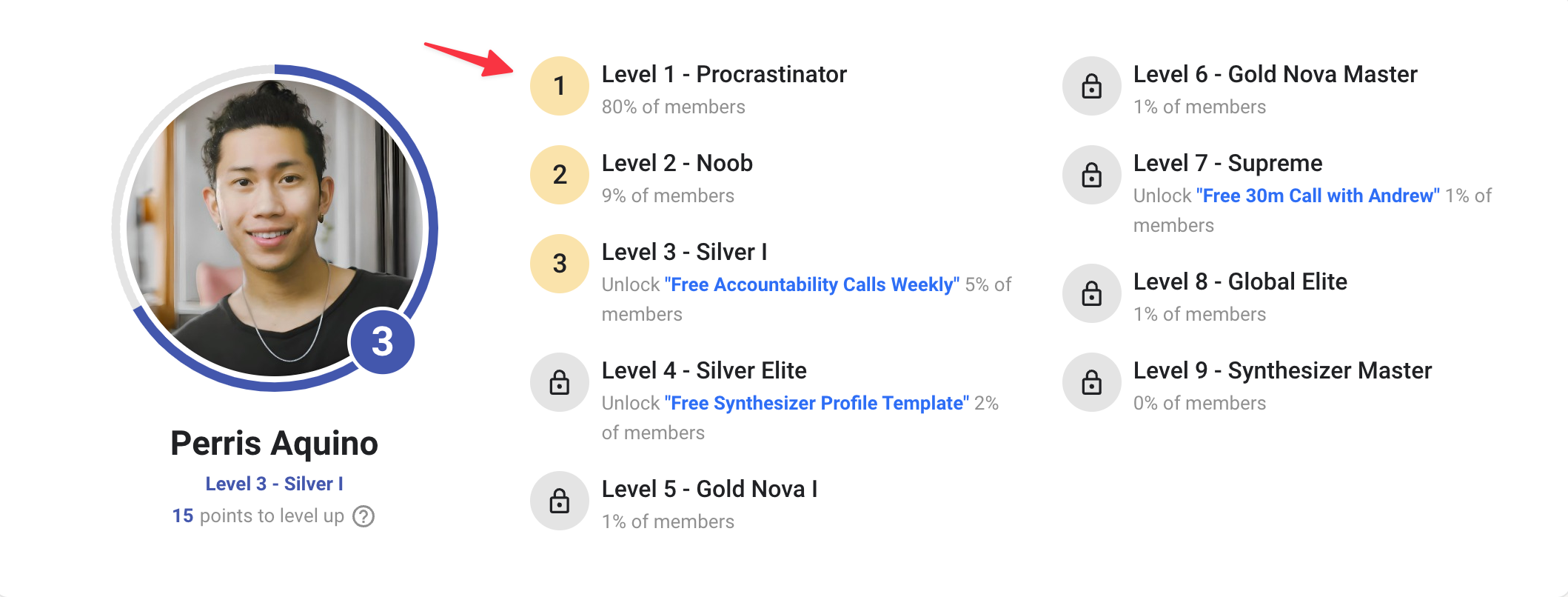
This parts fun.
You can get creative naming your levels. They’ll go a long way in growing the engagement of your community.
For example, in Andrew Kirby, synthesizer Skool..
I’m not a fan of being called a procrastinator.
When I first joined his group, this little kick in the arse made me want to go the extra mile and give some value to the community. I was able to climb the ranks to level 3, and unlock a few great resources along the way. (I’m good with living at silver for now)
For me this was cool, because I rarely ever want to engage in online communities. I’m one of those “better-in-person” dudes.
But this gamification feature played my ego good to put myself out there.
3. Upload Course Material
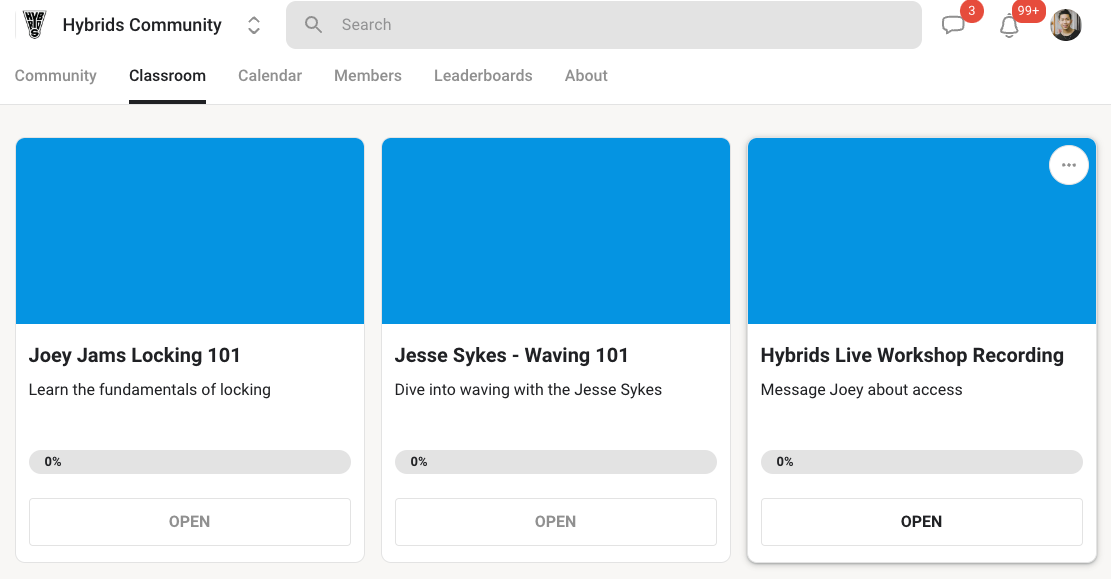
Here’s where you share your knowledge with your community.
As an ADHD-er, we got so much gold in our brains. You can teach it to others.
Grow Your Community
1. Invite Members
Start inviting your first members to your group!
They could be peers, friends, or early adopters interested in your content.
You can also post it on your social medias.
Copy and paste this onto your story or timeline to get people interested.
Make a simple call to action on you youtube channel, instagram page, or facebook profile.
2. Engage With Your Community
Now that you have some people inside your community talk to them!
Ask them questions. Do some market research.
What do they want to learn?
What do they want to see more of?
What can you improve to make the course material better?
Best thing about a community is that it acts as feedback loop on how you can better serve them.
3. Get Testimonials
Use a testimonial software like testimonial.to to collect feedback from your members.
You can then use these testimonials on you landing page, your personal website, or social media platforms to market your community, courses, or services.
Monetization
Theres a number of ways to earn money with Skool.
Lets go over the main ones.
1. Memberships
There are 2 types of communities you can make to start making money online
- free
- paid
Unfortunately you can only choose one at the moment.
You can have your members pay a monthly subscription fee only choose one at the moment but there are workarounds.
Think about it,
You give them classes to learn new skills
A community for your students to help each other grow
2. Affiliate Signups
If you want to make some extra cash + passive money online,
Skool has one of the best affiliate marketing programs I’ve ever seen.
They pay you $39/mo recurring for every person that signs up and builds their own community.
And skool will pay you for as long as the person you referred uses the platform.
(Luckily it’s killer)
I like this because it rewards you when you help your people succeed with it.
1 on 1 Consulting
Whether you have a free or paid community,
You can sell your 1 on 1 consulting services for a fee.
My consulting is $10,000 if someone wants to work with me directly.
Andrew Kirby’s, “Synthesizer Skool” is a free community, but every now and then he opens the door to take on 1 on 1 students or clients to help them build their brand directly.
In doing so , he’s generated over $2M online at the age of 22 years old.
Things to keep in mind
- Gamify Engagement: Introduce elements of gamification to keep members engaged and active.
- Auto DM Responder: Automate a personal welcome message for new members.
- Community Guidelines: Establish clear guidelines for member interactions to maintain a positive environment.
Wrapping it up
And thats how to make money online for beginners using skool.
Now you see, making money online isn’t that hard.
Embarking on your online money-making journey in 2024 is an exciting prospect. By laying the right foundations on Skool, you’re not just building a platform; you’re cultivating a community and shaping a business that resonates with your passions and expertise. Ready to take the plunge and start building your online presence? Join Skool today and begin your journey towards a successful and fulfilling online venture.
